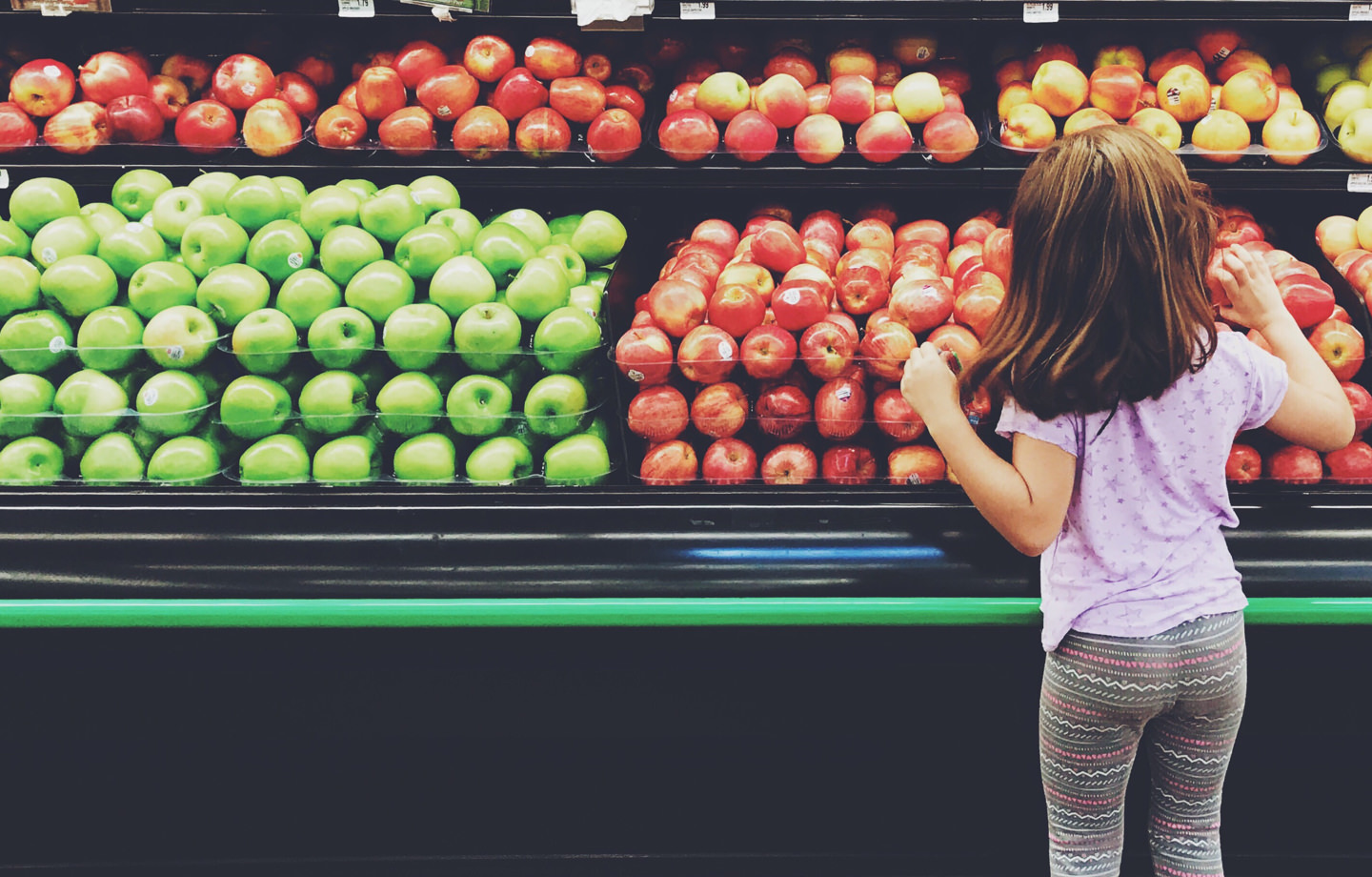What we eat has a direct impact on our health, but what happens when we can’t afford to eat organic? It can be a vicious cycle of trying not to compromise on the foods we consume, but still not going over our grocery budget — so how do we do it?
Eating healthy, organic foods on a budget requires a lot of planning, a little patience, and plenty of moxie as you figure out the routine that works best for your family, but it is 100% possible to eat organic on a budget. Here are a few ways to stop compromising on what your family eats, without blowing your budget.
Subscribe to Organic Coupon Sites
One of the most frustrating things about trying to eat organic on a budget is that the coupons are very rarely for anything but junk food — go figure. However, couponing sites exist exactly because of this problem, and they’re a great opportunity to save on organic packaged foods like baby food and protein bars.
Here are a few to try:
Aside from these sites that specialize in savings on natural foods and products, it’s worth looking at your local grocery stores online coupons. As these products become more and more popular, we’re seeing more deals than ever on everything from free-range chicken to natural cleaning products.
Plan Your Meals Around Weekly Specials
Speaking of your local grocery store’s deals, don’t give up on the tried and true sale paper just yet. Before you plan your meals for the week, see what’s going to be on sale so you can snag great deals on organic foods while they’re hot, and build your dinner menu around those specials.
Make Your Own
Organic snacks and specialty foods are where these things can start to add up fast. Try to eliminate filler foods from your diet — like chips and granola bars — and instead focus on buying more whole and unprocessed foods.
Packaged foods are convenient, but you’d be surprised at how easy it is to make several batches of homemade pizza dough on a Sunday afternoon, versus how much some of decent quality would cost to buy. Look at what you’re buying from the store, and then ask yourself if you can make it at home instead. In a lot of cases, you’ll save big (and learn some valuable culinary skills in the process).

Buy Local and In-Season
A lot of food costs stem simply from the cost to transport it, so if you live in Washington and are frequently buying organic avocados, you’re going to see a much higher grocery bill.
Focus instead on what grows locally (or grow your own!), and if you must buy imported produce, buy it when it’s in season to catch it at the best price. Find creative ways to preserve produce, and you can actually stock up when it’s cheap and freeze it to much on throughout the year (pro tip: frozen blueberries make a GREAT toddler snack).
Buy Organic Where It Counts
Sure, it’s great to get free-range, non-GMO verified, organic food, but it’s not the be-all end-all solution for a healthier diet (sorry guys, gluten-free donuts are still donuts). Prioritize what you spring for in organic, and learn enough about food production that you can feel comfortable compromising with standard choices on other things.
Having “The Dirty Dozen” list is really handy for this. Basically, it’s the Environmental Working Group’s compilation of produce that has the most pesticide residue on them. Here are 12 types of produce that you should always try to get in organic:
- Strawberries
- Spinach
- Nectarines
- Apples
- Peaches
- Pears
- Cherries
- Grapes
- Celery
- Tomatoes
- Sweet bell peppers
- Potatoes
Aside from produce, when it comes to trying to get the most out of your grocery budget, it’s also ideal to make organic meat and dairy products a priority. Look for grass-fed beef, free-range chicken, and dairy products without questionable additives like carrageenan and aspartame.
The solution may not always be organic, but what’s on the label is only part of the story of how that food was produced, so it’s helpful to learn more about individual companies and how they make their products than it is to try to figure it out in the grocery store.
Do your research ahead of time, and get a list of go-to brands together for the staples your household can’t live without, but that probably need to be bought from conscientious brands. Some of them may be organic, and some of them just might use real sugar instead of corn syrup, but it’s a great start.
Reduce Meat and Dairy Consumption
Even if you’re not a vegetarian or vegan, it can still be really cost effective to replace a few meals a week with vegetarian options instead of meat and dairy, if for no other reason than that organic meat and dairy products can get pricey fast.
It can be a challenging adjustment at first, but even just replacing two dinners a week with a vegan meal makes a world of difference. If you’re not sure where to start looking for recipes, look to Indian cuisine for a bit of inspiration — there are many vegan recipes out there, and the spices are so incredible that you won’t even miss the chicken or goat cheese.
Homemade lentil naan with hummus is one of my favorites, or you can try your hand at making a nice spinach saag.

Buy in Bulk
Buying groceries in bulk is one of my all-time favorite ways to save money — it is so satisfying having a fully stocked freezer and pantry.
Sure, you can stop up on dry goods like oatmeal and flats of canned beans too, but one of the best ways to really save some money with bulk buys is to go directly to the farmers. Ordering meat and produce in bulk from a farm is amazing because:
- You get to meet the farmer that’s raising it
- You’ll know EXACTLY how those animals and plants are being raised
- You can save a ton of money while supporting local farmers directly
Buying in bulk from farmers takes a little networking. A lot of them will have websites, but a lot of them won’t, so it may take asking around at local butcher shops and produce stands to figure out who to get in touch with. You’ll need ample freezer space, a deposit, and be willing to pick up your order (in some cases), but it is considerably worth it.
Aside from talking directly with farmers, many local co-ops offer ways for participants buy in bulk orders, so if you have one in your area, that’s another idea to explore.
For dry goods like spices, teas, and snacks, local shops and a great stash of reusable bags are a great way to get started. I buy all of my spices from the bulk bins at the local natural grocery store, and easily save 70%. You can also order online through co-ops that partner with Frontier, a fantastic bulk supplier of everything from dish soap to green tea.
It’s Not As Impossible As It Sounds
Sometimes it can feel literally impossible to eat healthy on a budget, but that’s just old shopping habits talking. With a little planning (and plenty of tenacity), anyone on any budget can eat healthier and live better.
Focus on being more of a planner, while still being an opportunist that builds healthy meals around sales, and you’ll be eating better, without blowing your budget every month.
And then you can reward yourself with some gluten-free donuts, my savvy shopping friend.
What are your tips for eating organic on a budget? Continue the conversation on Instagram or Facebook by tagging us with @AvocadoMattress or #AvocadoMattress.

Shop Pillows
The Essential Organic Pillow Collection
Gentle, breathable, non-toxic support.






